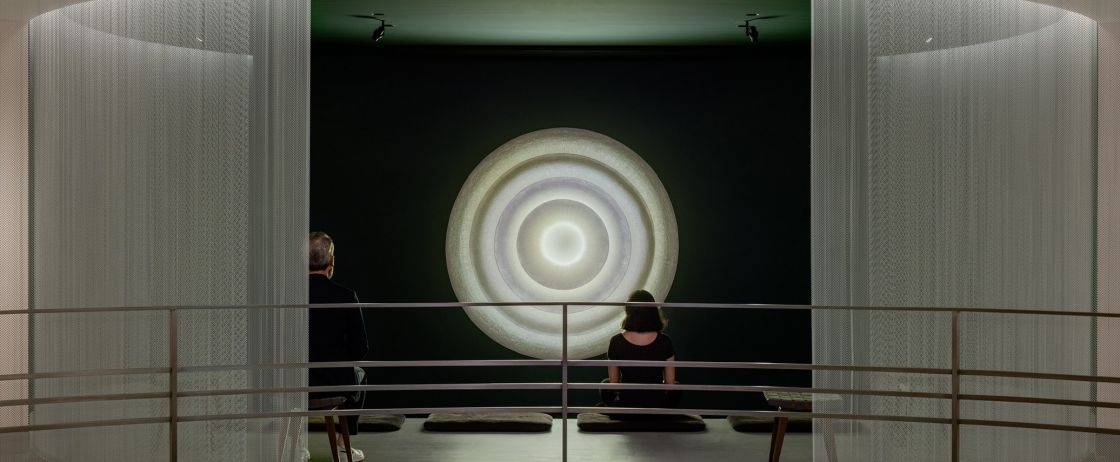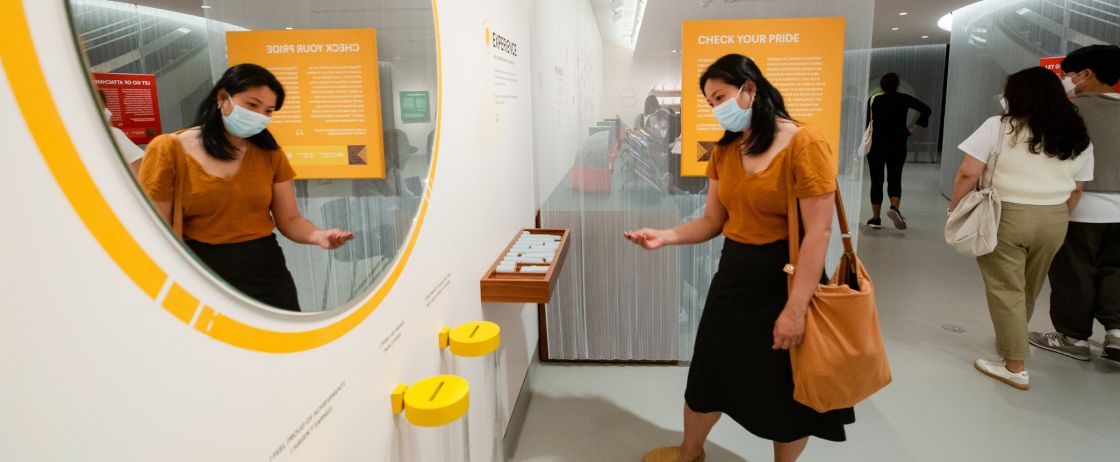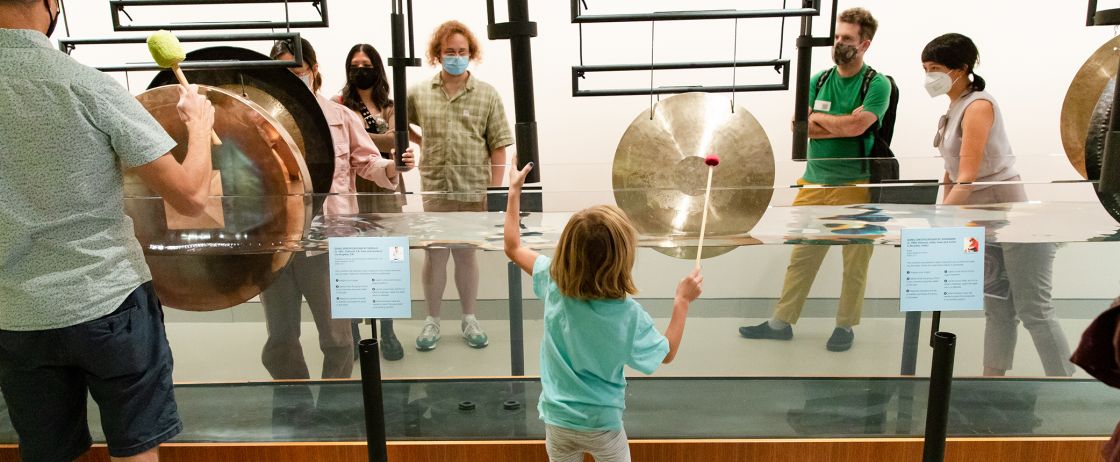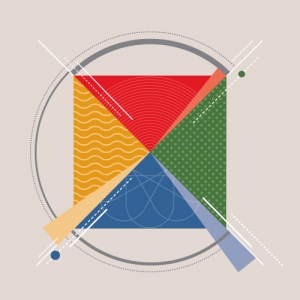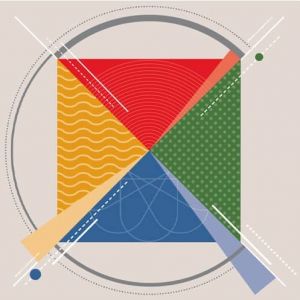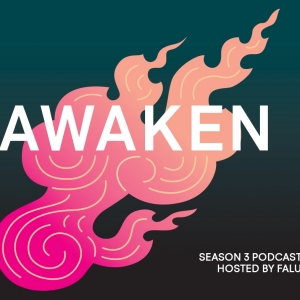
An Interactive Space for Social, Emotional, and Ethical Learning
The Mandala Lab, located on the Museum’s remodeled third floor, invites curiosity about our emotions. Consider how complex feelings show up in your everyday life and imagine how you might have the power to transform them.
Discover the Mandala Lab
Inspired by powerful Buddhist principles, the Mandala Lab features five thought-provoking, playful experiences—including videos, scents, sculpture, and curated percussion instruments—that guide you along an inner journey focused on self-awareness and awareness of others. See, smell, touch, and breathe your way through the space, designed to inspire connection, empathy, and learning.
If you would like to play a role in introducing the public to the Mandala Lab, please see the following opportunity. We welcome you to apply!
The Mandala Lab includes artist contributions from:
- Laurie Anderson
- Sanford Biggers
- Tenzin Tsetan Choklay
- Billy Cobham
- Amit Dutta
- Sheila E.
- Peter Gabriel
- Dame Evelyn Glennie
- Sarah Hennies
- Huang Ruo
- Shivamani
- Wang Yahui
- Palden Weinreb
- Apichatpong Weerasethakul
- Bora Yoon
- Scents created by Christophe Laudamiel
- Select gongs manufactured by Ryan Shelledy or Matt Nolan, UK
About Mandalas and Emotions
Mandalas are Buddhist teaching tools that can be used to learn how to confront and transform feelings of pride, attachment, envy, anger, and ignorance. Known as kleshas in Buddhism, these five afflictive emotions cloud our understanding of the world. Through a deep, sustained investigation of these emotions, some Buddhist practitioners cultivate corresponding wisdoms and skills that help them shift their view of the world, themselves, and others. Each activity on the floor is designed to help you examine these specific emotional states.
A Space for Visitors of All Ages
The Mandala Lab welcomes guests of all ages. Stress, difficult emotions, and change occur at all stages of our lives and impact the way we view ourselves, one another, and the world around us. In the Mandala Lab, the Rubin offers a range of emotional literacy programs for adults, families, students, educators, and more that build emotional intelligence so we can all better navigate our lives.
Have something to say about the emotions of pride, attachment, envy, anger, and ignorance seen in the Lab? Share it with us.
Your teaching may be featured in the Lab in the future.
Images: Liz Ligon
Lead support of the Mandala Lab is provided by the Milton and Sally Avery Arts Foundation, Barbara Bowman, Fred Eychaner, Noah P. Dorsky, the Estate of Lisina M. Hoch, The Pierre and Tana Matisse Foundation, Rasika and Girish Reddy, Shelley and Donald Rubin, and the Tiger Baron Foundation.
Major support is provided by Bob and Lois Baylis, Sara and Joseph Bedrick, Anne and Albert Chao, Con Edison, Daphne Hoch Cunningham and John Cunningham, Anne E. Delaney, DeWitt Stern, Karen Dorsky, Jack Lampl, Max Meehan, Dan Gimbel of NEPC, LLC, The Prospect Hill Foundation, Sarah and Craig Richardson, Basha Frost Rubin and Scott Grinsell, the Andrew Sabin Family Foundation, Namita and Arun Saraf, Linda Schejola, Eric and Alexandra Schoenberg, Eileen Caulfield Schwab, Tsherin Sherpa, Jesse Smith and Annice Kenan, Taipei Cultural Center in New York, New York Life Insurance Company, and New York Life.
This program is supported, in part, by public funds from the New York City Department of Cultural Affairs, in partnership with the City Council.
The Rubin Museum’s programs are made possible by the New York State Council on the Arts with the support of the Office of Governor Kathy Hochcul and the New York State Legislature.
This project is supported in part by the National Endowment for the Arts.
We additionally thank the generosity of 223 sponsors and donors who contributed to our 2020 gala, Inside the Mandala: A Virtual Gala.
The Mandala Lab’s multi-year campaign is underway, and our supporter list is in formation.
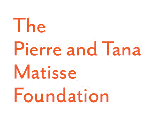






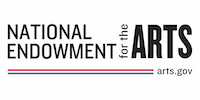
Plan your visit
The Mandala Lab is reserved for Family Sundays participants every Sunday from 1:00 to 3:00 PM.
Send Your Comments
Comments are moderated, and will not appear on this site until the Rubin has approved them.

